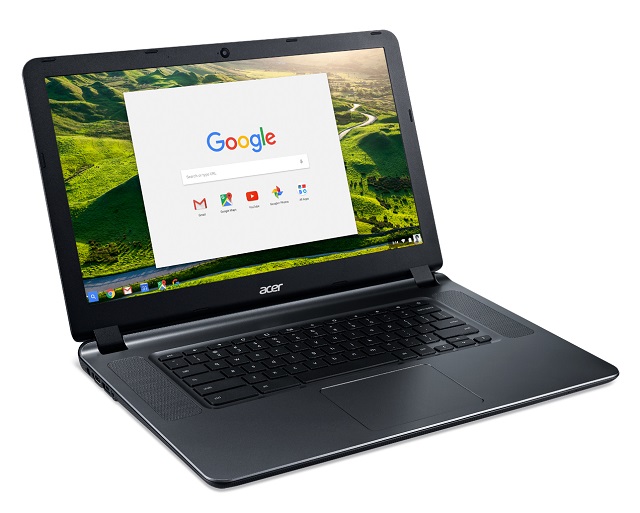
Acer updates Chromebook 15 with 12-hour battery life -- $199 exclusively at Walmart
Chromebooks are not for everyone, but for many home users, it is absolute perfection. If you live in the web browser -- as many people do nowadays -- laptops running Google's Linux-based Chrome OS are a godsend because they are maintenance free. No need for confusing OS upgrades or anti-virus software. It just works, and it works well. Since they can now run Android apps too, they could become a serious threat to Microsoft and Windows 10.
One of the most attractive aspects of Chromebooks is price -- they are often quite affordable. Today, Acer refreshes its 15.6 inch Chromebook 15 with a mind-boggling 12 hours of battery life. Best of all? It starts at $199. Yes, this model will get Android app support in a future update too.
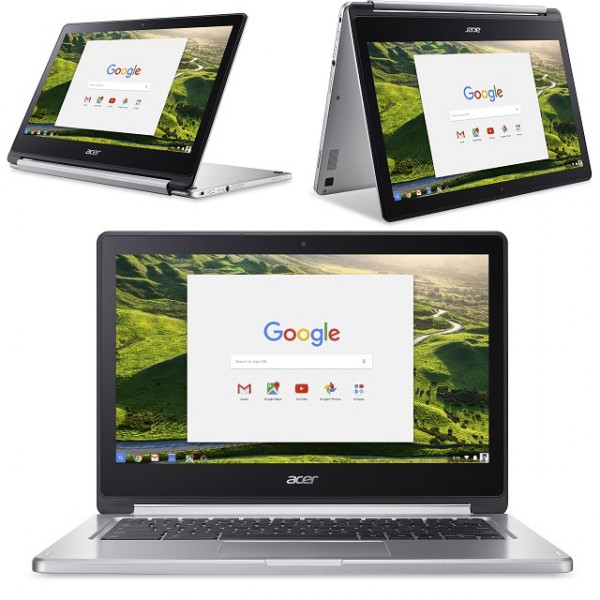
Acer Chromebook R 13 is a touchscreen convertible with Android app support
A lot of pundits like to put down the Linux-based Chrome OS for being deficient compared to more mature desktop operating systems. True, both Windows 10 and macOS are far more useful and powerful -- for now -- but the beauty of Chrome OS is its simplicity. It is arguably the most secure platform too, least likely to experience malware and vulnerabilities. Chromebooks rock, y'all!
With all of that said, Android app support is slowly being rolled-out to some Chromebooks, potentially making them much more useful. Hopefully this does not impact security, however. Today, Acer announces a 13.3-inch touchscreen convertible called 'Chromebook R 13'. While it will not have Google Play support out of the box, Android app support is being promised by the end of 2016.
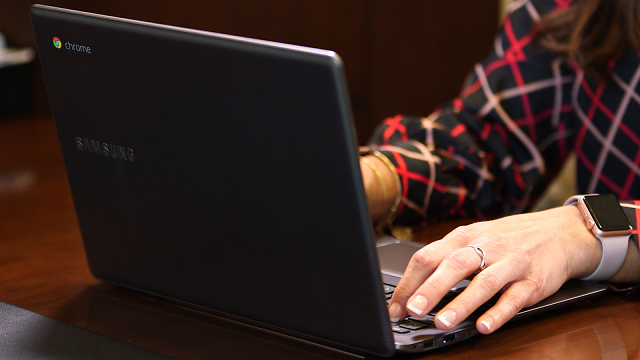
Charles Schwab says no to Windows 10 -- chooses Chromebooks instead
When it comes to get working done, I leverage many operating systems -- Windows 10, Ubuntu, iOS, and believe it or not, even Chrome OS. Google's cloud-focused desktop OS is actually quite capable -- depending on needs, of course. Many things work wonderfully in a browser nowadays, such as word processing, spreadsheets, and photo editing.
Apparently, Charles Schwab has seen the light on Chromebooks too, as the financial company has chosen them for a specific need -- in-person account opening. In other words, the much-respected company did not choose Windows 10 for this project. Sorry, Microsoft!
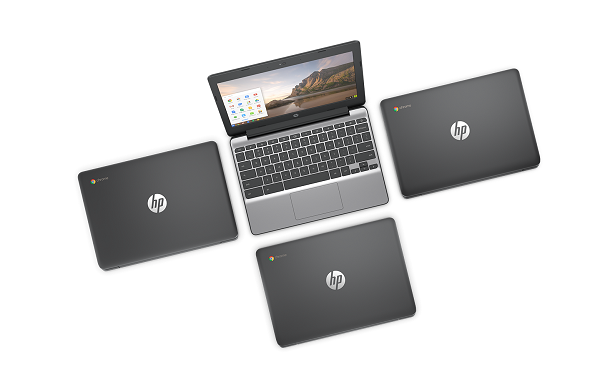
HP Chromebook 11 G5 is an affordable touchscreen laptop with Android app focus
Chromebooks are wonderful computers for many reasons. Besides often being affordable, they are based on the Linux kernel, which creates a rock-solid foundation. They feature a largely malware free experience thanks to its focus on the web rather than local storage. With that said, Google's delivery of the Play Store and locally-installed Android apps to the web-based platform is going to change everything -- maybe for the better. From a security perspective, it could be for the worse.
Today, HP announces the Chromebook 11 G5. This all-new Chrome OS laptop is extremely affordable, starting at less than $200. The real news, however, is that this low-cost machine can be equipped with an optional touchscreen, which HP is offering as a way to future-proof for eventual Android app usage.
Android apps headed for two more Chromebooks
Ever since Google developed and released both its Android and Chrome operating systems, there has been some confusion as to why the two platforms weren't combined. So far the company has been mum on plans to merge the two, but that process seems to be starting.
Just this week Android apps were released to the Asus Flip, and now two more devices will be getting the added features soon.
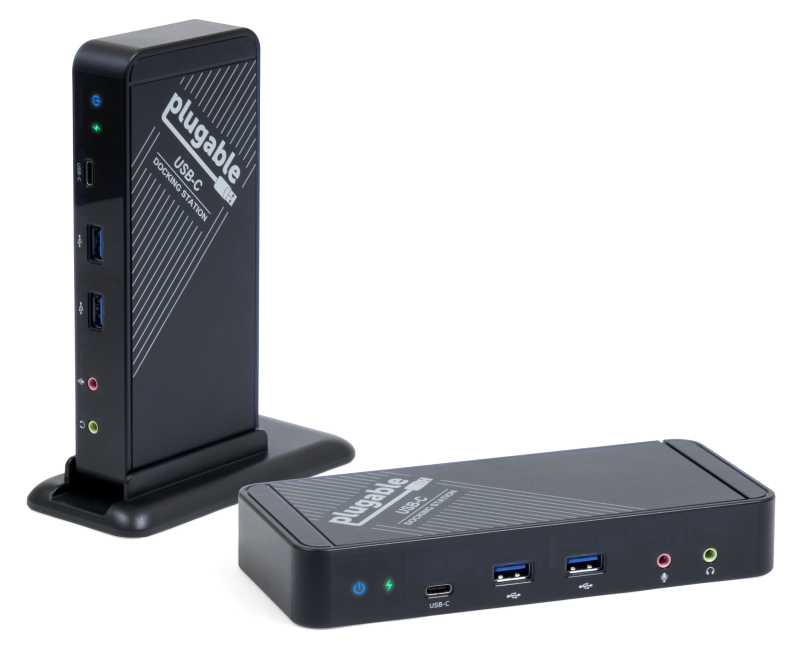
Plugable UD-CA1 USB Type-C universal 4K charging docking station now available
If you purchased Apple's newest MacBook, congratulations -- you own a really cool svelte machine. While a bit under-powered, for some people -- depending on their needs -- it is a solid, albeit expensive, choice. Unfortunately, while its USB Type-C port is quite modern, it is the only port on the machine (other than a 3.5mm audio jack). This is problematic, as you cannot charge the laptop while utilizing USB accessories.
The way around this limitation, however, are USB hubs which also pass-through power. Today, Plugable announces a new product that takes this concept a step further. Its new UD-CA1 is a USB Type-C universal charging docking station, capable of outputting 4K video. It is a full-fledged single-cable docking solution for not only Apple's MacBook, but Windows and Linux machines with USB Type-C too -- including Chrome OS. When combined with a display, keyboard, and mouse, the Plugable UD-CA1 will turn the laptop into a powerful desktop workstation.
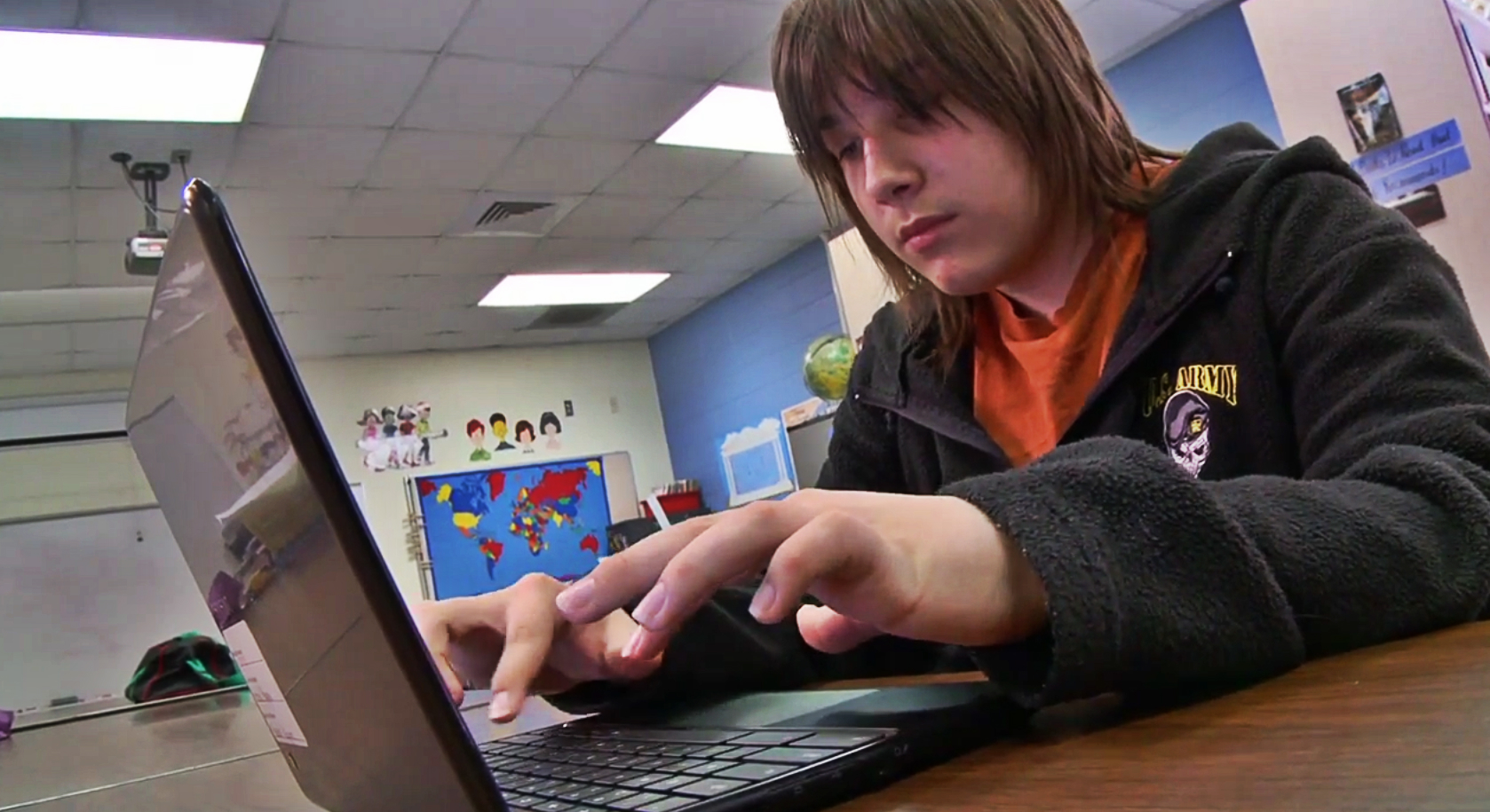
Why is Google bringing Android apps to Chromebook?
Answer: Your kids. Chromebook leads laptop and desktop sales through U.S. commercial channels to schools, according to NPD. Education is overwhelmingly the primary market for the computers. The institutions can't buy enough of the thangs, for their utility and low-cost compared to notebooks running either OS X or Windows. That cost is as much about extended webapps and services from Google (or its developer partners), available for free or comparatively next-to-nothing, set against software for the other platforms.
Wrinkle in the Google firmament: iPhone and Chromebook are like water and dirt. The sediment settles unless shaken up. Sure youngsters can do all their Googly things—Docs, Gmail, Maps, Photos, YouTube, etc. -- on iOS but the experience is smoother and more homogenous when mixed Android and Chrome OS. What the kiddies lack, and their educators, is a swath of useful apps like the Apple kids get.
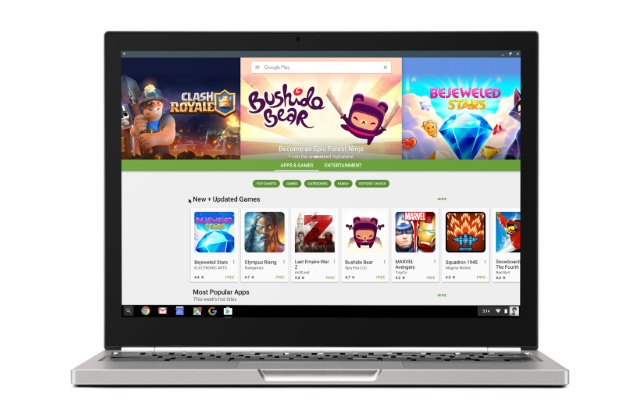
Google makes Chromebooks exciting again by adding Google Play and Android apps
Much like Windows Mobile, Chromebooks have long suffered with something of a limited range of apps. Starting today, all this changes; Google is bringing the full range of Android apps to Chromebook users via the Google Play store.
With Chromebooks having just overtaken Macs in terms of popularity, the introduction of millions of Android apps to the platform is incredibly well-timed. Before you get too excited, the rollout is not immediate. Users on the developer channel with certain Chromebook models will get access first, but there are plans to bring Google Play to more devices over the coming months.
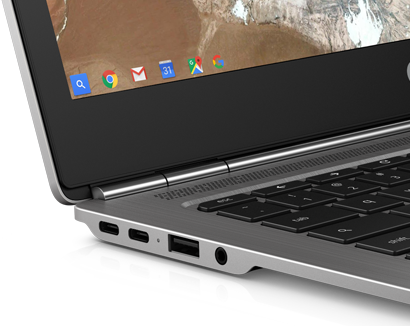
HP Chromebook 13 is a business-focused Chrome OS laptop with USB-C
In the grand scheme of things, Chrome OS is hardly a major player from a desktop market share perspective -- for now. With that said, the Linux-based operating system has captured the hearts and minds of many consumers. It has matured quite a bit too, becoming a viable Windows alternative for home users. Actually, it is a great choice for some businesses too -- depending on needs, of course.
Today, Google announces the latest business-focused laptop running its desktop operating system -- the HP Chromebook 13. Not only is this Chrome OS laptop powerful, affordable, and beautiful, but very secure too. It can be argued that it is safer than a Windows notebook.
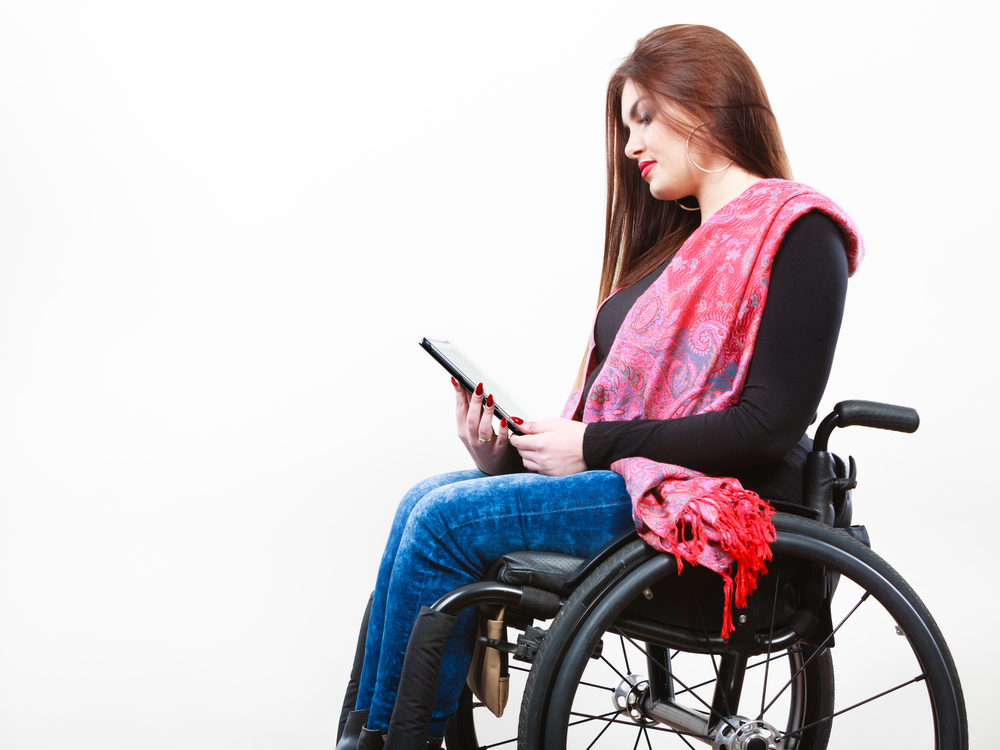
Google shows love to users with disabilities
According to Google, 20 percent of people in the USA will experience a disability at some point in their life. Let's think about this for a moment -- that is one in five people. In other words, people with disabilities are a significant part of the population. While there are many laws on the books protecting the disabled from discrimination, this group of people can still be underrepresented.
Today, the search giant highlights some of the ways it is helping users with disabilities. Google is focusing on multiple platforms, such as Chromebooks, Android, and the web.
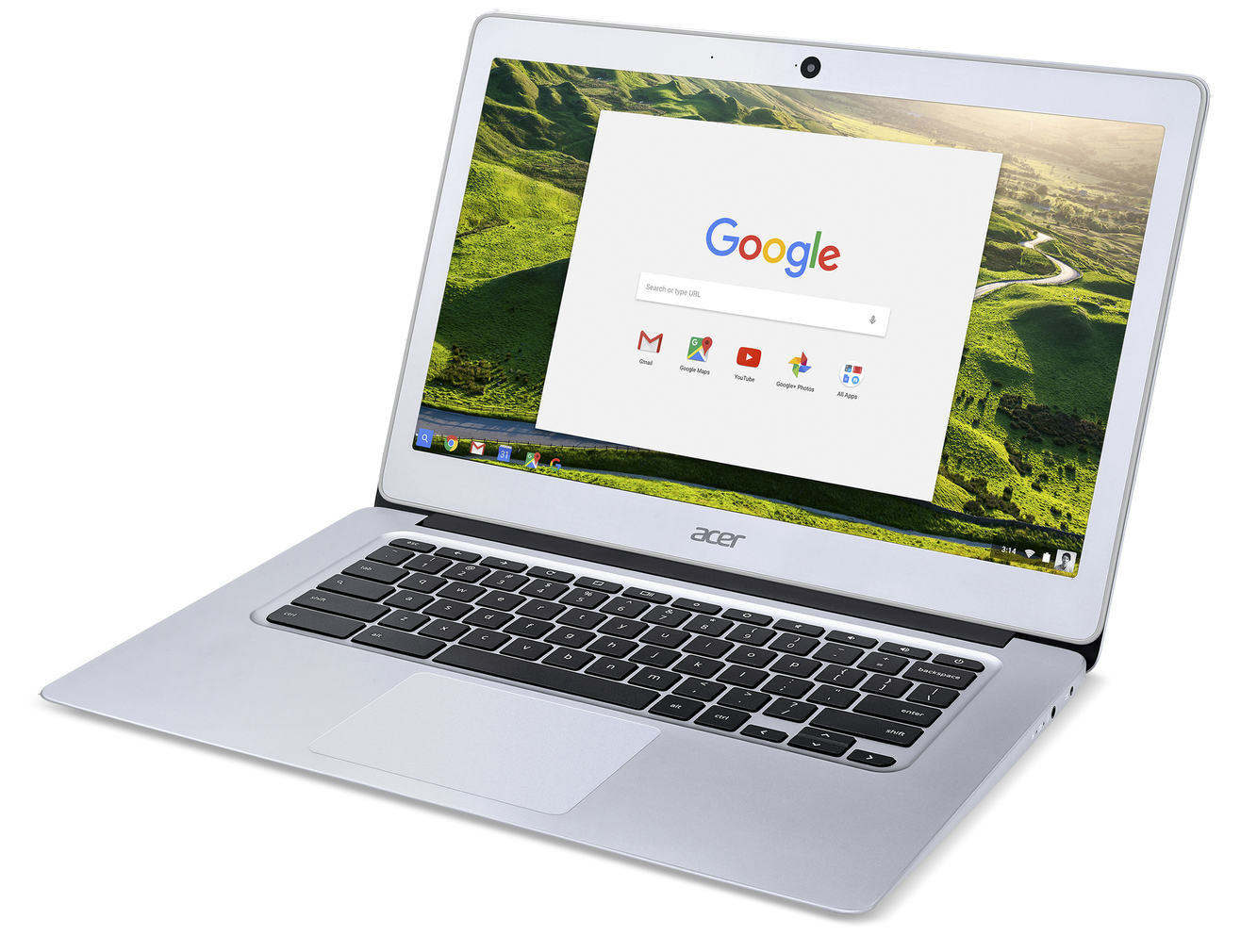
Acer Chromebook 14 has aluminum body, 14-inch screen, and up to 14 hours of battery life
When it comes time to name a device, a marketing team usually gets involved. Many monikers are thrown about, often with a number designation that signals screen size, generation, or something else altogether. The Nexus 6 is based on screen size, iPad naming is sometimes based on generation, and the Xbox One -- well, who knows what Microsoft was thinking with its third console!
Today, Acer announces its newest Chrome OS laptop, the Chromebook 14. I know what you are thinking -- 14 inch screen, right? You would be correct -- that is the size of the display. While that is the obvious inspiration for the name, the number 14 is significant in another way too. You see, the Acer Chromebook 14 features up to 14 hours of battery life. While that is impressive, Acer has one more trick up its sleeve too.
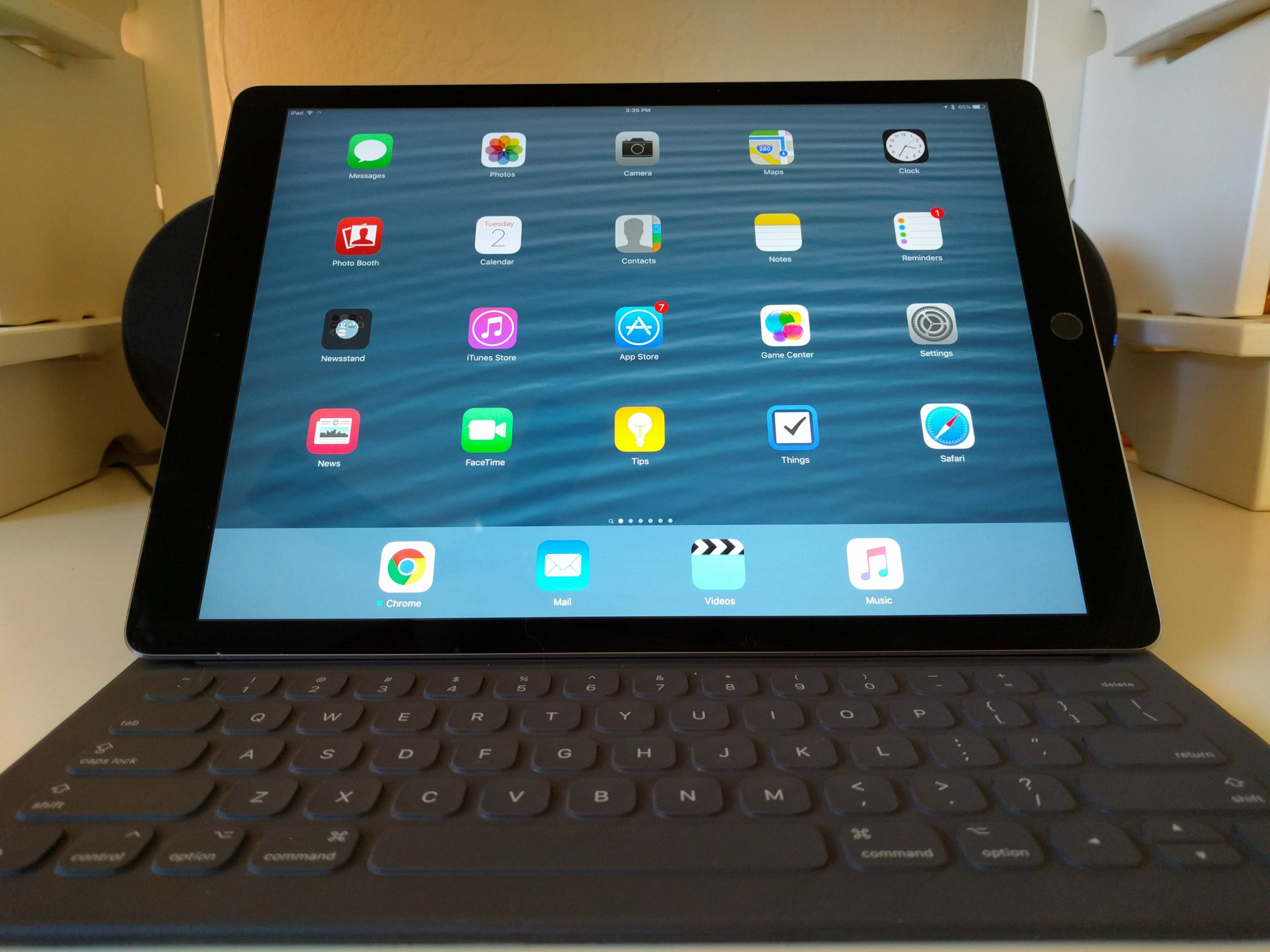
My Apple iPad Pro adventure begins [first in a series]
The first thing you notice about iPad Pro is the size. The tablet is ginormous. Its 12.9-inch screen lays before you like a chalk slate -- a blank canvas demanding typed text or drawings made with Apple Pencil. Yet something also feels wrong about the thing. During the so-called Steve Jobs era, refined designs were smaller -- like iPod nano. Apple is no stranger to larger; 27-inch iMac today or 17-inch MacBook Pro of yesteryear are examples. Perhaps. But there's big, and BIG.
The giant tablet arrived around 2:50 p.m. PST on Groundhog Day 2016, marking a bold computing adventure for February: Using iPad Pro as my primary PC, and hopefully only one. Perhaps you read my recent obituary to Apple love lost and might wonder why buy anything Apple? I like to experiment and am paid to try out new things (so you won't have to). By sheer size, PC replacement -- not companion -- is the only sensible use for iPad Pro. Can it meet the demands? I want to find out.
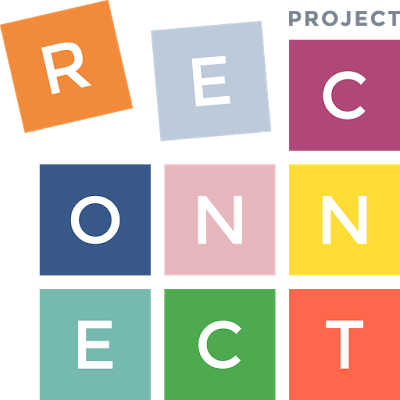
Google donates more than $5 million to give Chromebooks to refugees
For many consumers, a Chromebook is looked at as an inexpensive secondary computer. The truth is, yeah, they make excellent complementary devices. With that said, when it comes to consumers without a lot of money, laptops running Google's Chrome OS can be a perfectly fine primary computer too -- depending on needs, of course.
Chromebooks are more than low prices, however; they are also very low-maintenance too. Updates are automatic, and malware is largely non-existent. It is for that reason that the machines are perfect for scenarios where resources are scarce. Today, Google announces that it is donating $5.3 million to put Chromebooks in the hands of refugees.
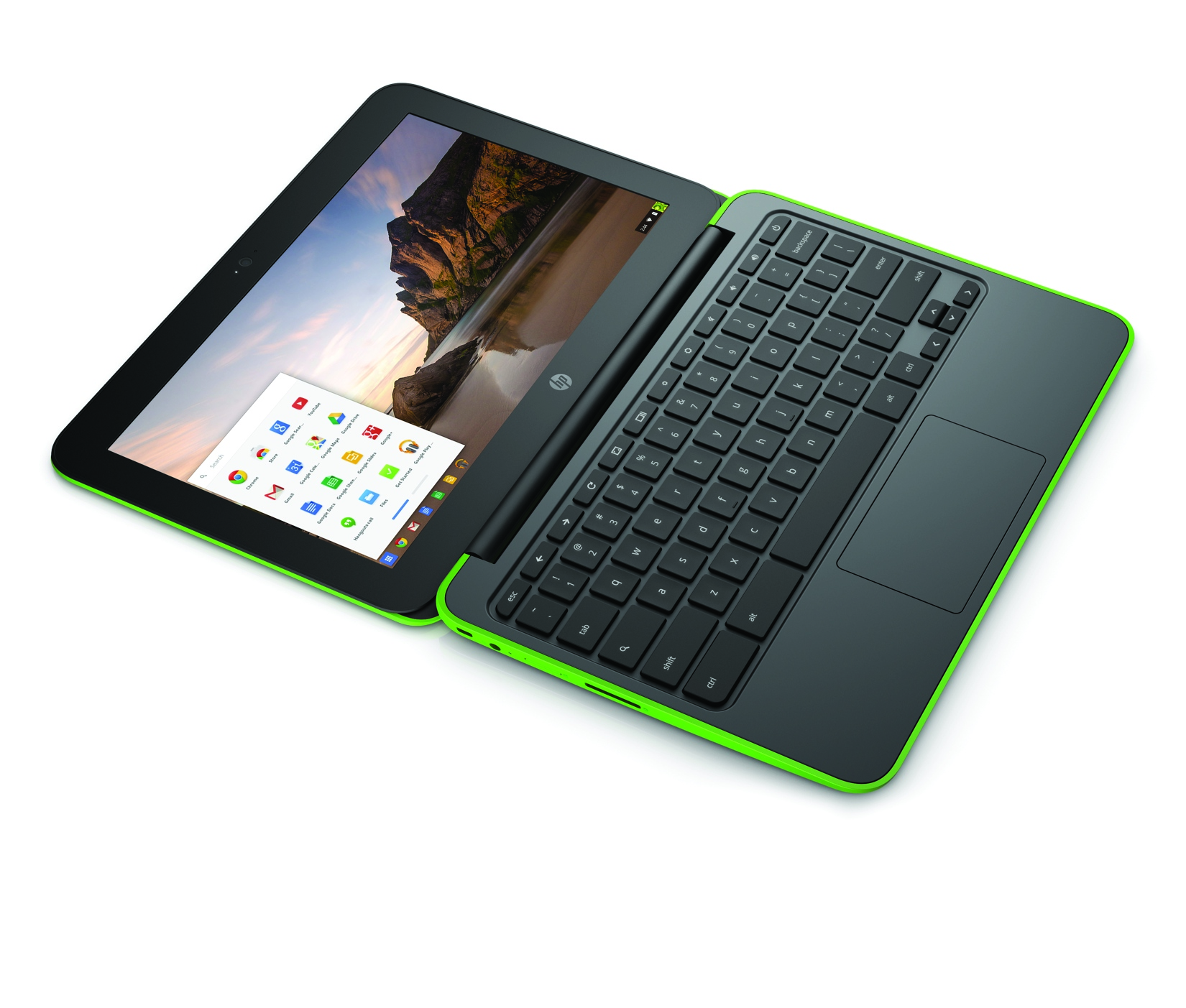
HP announces rugged Chromebook 11 G4 Education Edition
Chromebooks are great for home use, but they truly shine for education. Its easy to see why -- they are easy to use, cost effective and (unlike the iPad) offer multi-user support. These are all essential things for school districts on a tight budget.
Today, HP announces the Chromebook 11 G4 Education Edition. Starting at a paltry $199, it looks to offer incredible value. Thanks to military-grade build quality, it should be very durable. This is very important, of course, as children are often rough on computers.
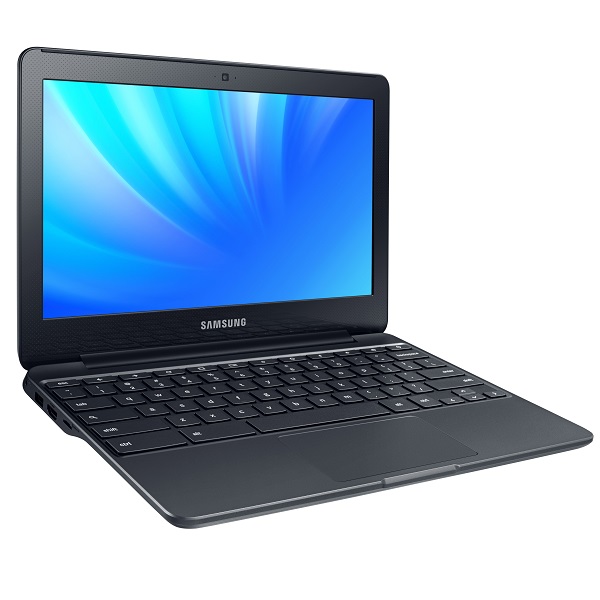
Samsung announces Chromebook 3 -- claims strong consumer demand for Chrome OS
If you are in the market for a new laptop, you will probably target a Windows 10 variant. You know what? That's a smart choice. Microsoft's operating system has a ton of cool programs and apps available for it. The problem? There is a lot of malware targeting it too. With that said, if everything you do is on the web -- social media, web surfing, and email to name a few -- maybe Google's Chrome OS is the better choice. While limited compared to Windows, it is arguably safer. Chromebooks are often less expensive too.
Today, citing high consumer demand for Chrome OS, Samsung announces its all-new 11.6-inch Chromebook 3. This compact and beautiful laptop features a keyboard that looks absolutely amazing. Unfortunately, the rest of the package is a bit ho-hum.
